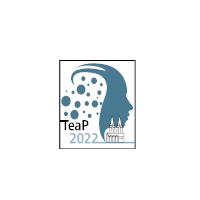Multinomial-Processing-Tree (MPT) Modeling: Basic Methods and Recent Advances
A Pre‐Conference Workshop at the TeaP 2022 in Cologne
Now: Saturday, March 19, 9am - 3pm
and Sunday, March 20, 9.30am - 3pm
(Was: Saturday, 1pm - 7pm and Sunday, 9am - 6pm)
Funded by the William K. & Katherine W. Estes Fund
Instructors
Edgar Erdfelder (University of Mannheim)
Daniel W. Heck (Philipps-Universität Marburg)
Guest Speaker
Karl Christoph Klauer (Albert-Ludwigs-Universität Freiburg)
Description
Multinomial processing tree (MPT) models provide a powerful tool to disentangle different cognitive processes contributing to the same observable responses. In many fields of psychology (e.g., memory, decision making, and social cognition), MPT models have been successfully applied to test hypotheses concerning specific processes via separate model parameters. So far, however, applications of this model class were restricted to discrete data such as response frequencies. Furthermore, these response frequencies were usually pooled across participants which prohibits applications of MPT models to hypotheses involving individual differences and also involves the risk of standard errors being calculated incorrectly. Recent research, however, resulted in sophisticated improvements and extensions that will broaden the potential applications of this model class.
In our two-day workshop, we provide a systematic and application-oriented overview of the basics and the most recent developments in MPT modeling. Using the software multiTree and other tools, participants will practice how to develop their own MPT models for categorical data, how to assess model fit, how to test hypotheses on model parameters and assess the statistical power of these tests, how to check for identifiability of different model variants, and how to select the best model from a set of candidate models that provides optimal balance between goodness-of-fit and model simplicity. Furthermore, workshop participants will learn about recent advancements. One of them is hierarchical Bayesian modeling, an approach that provides researchers with all the advantages of parameter estimation at the participant level while achieving a higher reliability by assuming a group structure of the parameters on the aggregate level. The second important development is the extension of MPT models to capture categorical and continuous data jointly, enabling applications to a considerably larger set of paradigms and dependent variables (e.g., latency-based or process-tracing measures). We are glad to announce that Karl Christoph Klauer will provide participants with an overview of the most recent advancements in MPT generalizations to continuous data. Participants will exercise the application of all of these advancements with user-friendly R packages (TreeBUGS, gpt, rtmpt).
Recommendations Regarding Prior Knowledge
The workshop will be largely application-oriented and is open to interested researchers in all phases of their career (faculty, Post-Docs, PhD students, and master students). Despite a focus on applications, we will provide a solid conceptual and statistical treatment, for which basic knowledge about MPT models is useful but not necessary. A solid background in statistics is sufficient.
Note that this workshop does not solely address substantive researchers who want to learn about recent MPT developments. We explicitly invite applications from researchers who have been interested in MPT modeling but did not know how to start.
What to Bring to the Workshop
In order to benefit from the extensive exercises, participants must bring their own notebook with the relevant (free) software being installed. Information regarding which software is required and where to get it will be sent via e-mail about four weeks in advance.
The workshop includes sessions dedicated to individual MPT projects of the participants. We thus invite participants to prepare and to bring their own material, that is, their ideas and possibly data for an MPT model addressing the research question they are currently working on. If you plan to bring your own data, please let us know two weeks before the workshop.
Number of Participants
25
Information on the Estes Fund
The Estes Fund is jointly overseen by the Association for Psychological Science and the Psychonomic Society. For more information, see https://www.psychologicalscience.org/members/awards-and-honors/estes-fund
